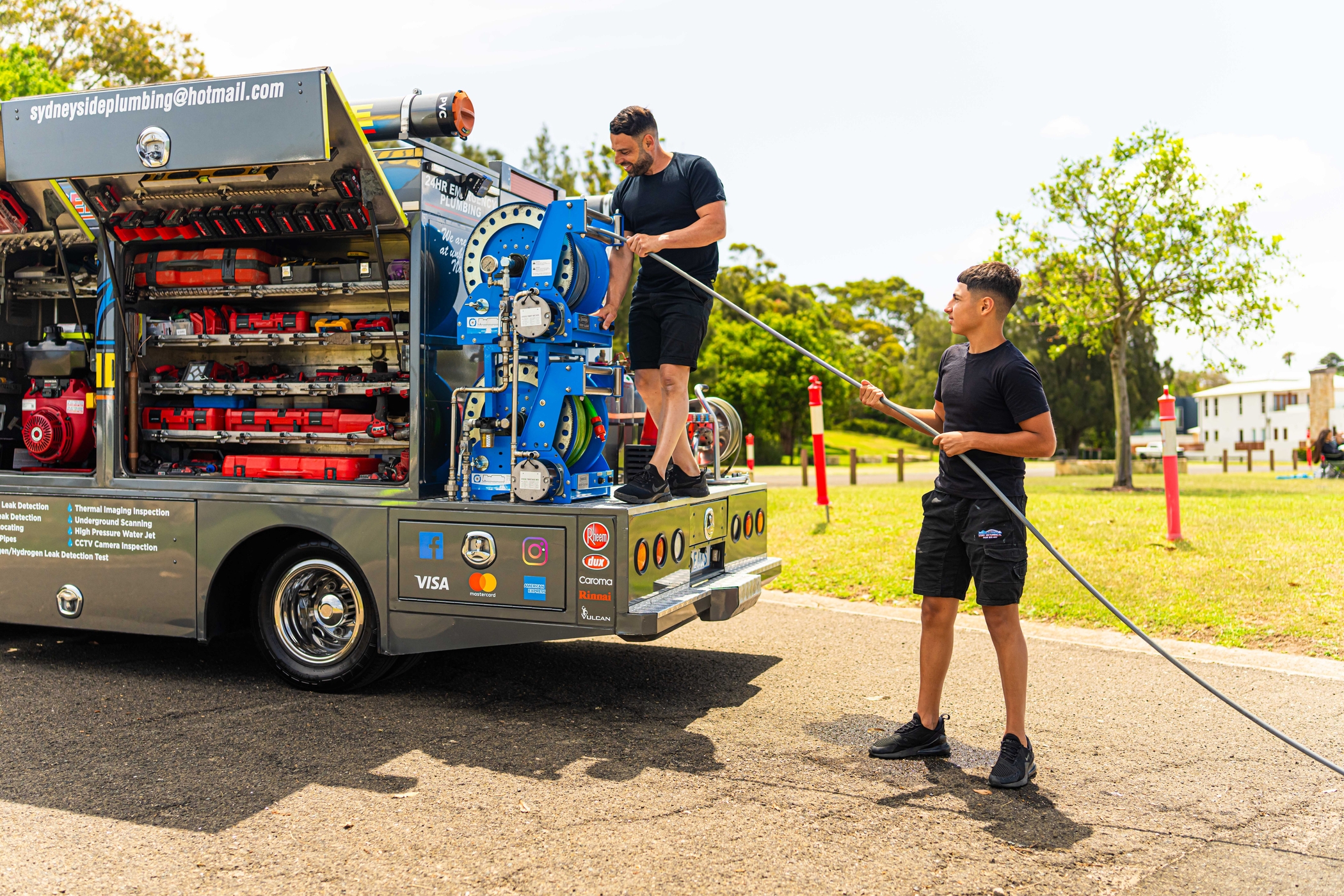It’s A Long Road: Mental Health Care On The Go

Truck drivers bear the weighty responsibility of transporting huge loads, covering titanic distances and sometimes working long and difficult shifts—all to keep the nation moving.
The job can be very physically demanding, and not to mention the mental load of constantly organising, scheduling and paying attention on the road. A recent survey of Australian truckies reported that one in five felt they had experienced, or still did, stress and mental health problems, including anxiety, depression and social isolation. All of this can put a real strain, but there are ways to keep on top of your physical and mental health. Read on for some simple mental health–check tips. We speak with Dr Grant Blashki, a mental health professional working with Beyond Blue. Recognising the signs comes first
It’s not hard to ignore or miss the subtle signs that can identify mental health conditions, explains Dr Blashki.
Dr Blashki explains that any changes in regular behaviour or thinking can be a warning sign.
“If you notice any persistent changes in your thoughts, feelings or behaviour that are starting to interfere with your work performance or quality of life, see your GP or health professional for assessment and advice. The earlier you seek support, the sooner you can recover,” Dr Blashki said.
Feeling isolated
For many people, working far away from home and family is challenging and can exacerbate feelings of loneliness and social isolation. These feelings of isolation are especially common in truckies, in particular long-haul drivers, who have limited interactions with other people while driving on shift.
Feeling anxious
Anxiety that requires treatment isn’t always easy to recognise. Symptoms can develop slowly over time; and given that everyone experiences anxiety at some point, it can be hard to know how much is too much.
Dr Blashki explained the difference, “Normal anxiety tends to be limited in time and connected with some stressful situation or event, such as a job interview.
“The type of anxiety experienced by people with an anxiety condition is more frequent or persistent, not always connected to an obvious challenge, and impacts quality of life and day-to-day functioning.”
While every anxiety condition is different, there are common symptoms to watch out for. The following list, though not exhaustive, provides a good indication:
Recognising the signs comes first
It’s not hard to ignore or miss the subtle signs that can identify mental health conditions, explains Dr Blashki.
Dr Blashki explains that any changes in regular behaviour or thinking can be a warning sign.
“If you notice any persistent changes in your thoughts, feelings or behaviour that are starting to interfere with your work performance or quality of life, see your GP or health professional for assessment and advice. The earlier you seek support, the sooner you can recover,” Dr Blashki said.
Feeling isolated
For many people, working far away from home and family is challenging and can exacerbate feelings of loneliness and social isolation. These feelings of isolation are especially common in truckies, in particular long-haul drivers, who have limited interactions with other people while driving on shift.
Feeling anxious
Anxiety that requires treatment isn’t always easy to recognise. Symptoms can develop slowly over time; and given that everyone experiences anxiety at some point, it can be hard to know how much is too much.
Dr Blashki explained the difference, “Normal anxiety tends to be limited in time and connected with some stressful situation or event, such as a job interview.
“The type of anxiety experienced by people with an anxiety condition is more frequent or persistent, not always connected to an obvious challenge, and impacts quality of life and day-to-day functioning.”
While every anxiety condition is different, there are common symptoms to watch out for. The following list, though not exhaustive, provides a good indication:
- Physical—panic attacks; hot and cold flushes; racing heart ; tightening of the chest; quick breathing; restlessness; feeling tense, wound-up or edgy
- Psychological—excessive fear or worry; catastrophising; obsessive thinking
- Behavioural—avoiding situations that make you feel anxious, impacting your work or social life
- Not going out anymore, not getting things done at work, withdrawing from friends and family
- Feeling overwhelmed, guilty, irritable, frustrated, lacking in confidence, indecisive or miserable
- Negative and cyclical thoughts such as “Nothing good ever happens to me”
- Feeling tired all the time, sick and run down; headaches and muscle pains; sleep problems; loss of appetite
 Practical tips
With the help of Dr Blashki, we’ve identified some simple and practical steps to keep healthy while on the job.
Get out there
Meet with colleagues, tee up a social engagement every now and then.
Stay connected
Try to stay connected with friends and family through social networks and online forums.
Foster healthy habits
Stay hydrated, make a conscious choice to eat healthy food, get some fresh air, stretch and stay conscious of your driving posture.
Sleep
Take a nap during breaks on long drives, try to get enough sleep at night, and make an active effort to fight driver fatigue.
Take some time
Truck driving is hard work, but it’s important to learn to relax. On your days off, spend time with family and friends, or participate in a hobby or sport to unwind and relax.
Making self-care a priority
Taking the time to care for our health, as well as and the health of friends and family, can be tough.
But a good place to begin is by asking yourself and your loved ones, “Are you okay?” If you find you are feeling overwhelmed, seek help by speaking to a GP or mental health professional—or even a workmate—as soon as you can.
There are lots of resources specifically designed to help us keep our mental health in check, such as the following:
If you’re finding it too hard to talk, you can also message Lifeline Text on 0477 13 11 14
(6 pm to midnight, seven days a week).
In support of mental wellbeing in the road transport industry, Isuzu Australia Limited hosted an R U OK? Day fundraiser.
To find out how you can contribute to R U OK?, visit www.ruok.org.au.
Being on the road day in, day out, can be tedious. But listening to a good podcast can take the grind out of your daily routine. Here are some of the best podcasts to keep you company on the road.
Practical tips
With the help of Dr Blashki, we’ve identified some simple and practical steps to keep healthy while on the job.
Get out there
Meet with colleagues, tee up a social engagement every now and then.
Stay connected
Try to stay connected with friends and family through social networks and online forums.
Foster healthy habits
Stay hydrated, make a conscious choice to eat healthy food, get some fresh air, stretch and stay conscious of your driving posture.
Sleep
Take a nap during breaks on long drives, try to get enough sleep at night, and make an active effort to fight driver fatigue.
Take some time
Truck driving is hard work, but it’s important to learn to relax. On your days off, spend time with family and friends, or participate in a hobby or sport to unwind and relax.
Making self-care a priority
Taking the time to care for our health, as well as and the health of friends and family, can be tough.
But a good place to begin is by asking yourself and your loved ones, “Are you okay?” If you find you are feeling overwhelmed, seek help by speaking to a GP or mental health professional—or even a workmate—as soon as you can.
There are lots of resources specifically designed to help us keep our mental health in check, such as the following:
If you’re finding it too hard to talk, you can also message Lifeline Text on 0477 13 11 14
(6 pm to midnight, seven days a week).
In support of mental wellbeing in the road transport industry, Isuzu Australia Limited hosted an R U OK? Day fundraiser.
To find out how you can contribute to R U OK?, visit www.ruok.org.au.
Being on the road day in, day out, can be tedious. But listening to a good podcast can take the grind out of your daily routine. Here are some of the best podcasts to keep you company on the road.



Lead the charge with Australia’s favourite truck.
2025 heralds Isuzu Trucks’ 36th year as market leader.* Number one in more than just sales, though, Isuzu Trucks has an unparalleled dealer support network, customer care program, truck range, and legendary reliability. To get behind the wheel of a winner, get into your nearest Isuzu Trucks Dealer now or visit isuzu.com.au
Learn More



